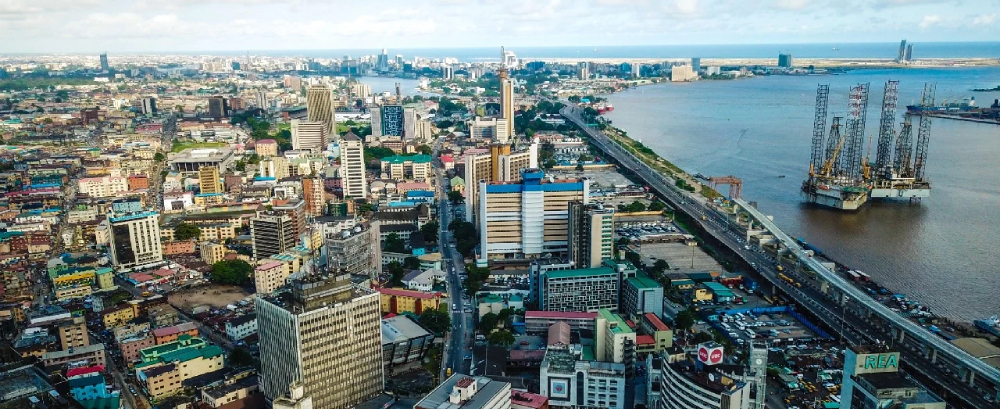
Niger
April 13, 2025Nigeria, located in West Africa, is one of the continent’s most resource-rich countries, with a wealth of mineral resources that contribute significantly to its economy. While the country is widely known for its oil and gas reserves, it also possesses a variety of solid minerals that are crucial to its economic development. Here’s an overview of the key mineral resources in Nigeria:
Key Mineral Resources
Oil and Natural Gas:
Overview: Nigeria is the largest oil producer in Africa and one of the top exporters of crude oil globally. The oil and gas sector is the backbone of Nigeria’s economy, accounting for a significant portion of the government’s revenue and the country’s export earnings.
Major Oil Fields: The Niger Delta region is the primary area for oil production, with major oil fields including the Bonny, Forcados, and Brass oil fields. Offshore fields, such as Bonga and Agbami, are also significant.
Reserves: Nigeria has substantial proven oil and natural gas reserves, with ongoing exploration likely to increase these figures.
Coal:
Overview: Nigeria has significant coal deposits, particularly in the eastern and northern regions, such as Enugu and Benue states. Coal was once a major source of energy in Nigeria before the discovery of oil.
Reserves: Nigeria’s coal reserves are estimated to be substantial, with potential for development to support both domestic energy needs and export.
Iron Ore:
Overview: Nigeria has large iron ore deposits, particularly in the Itakpe region of Kogi State. The development of these iron ore resources is crucial for the country’s steel industry.
Reserves: Nigeria’s iron ore reserves are significant, with ongoing efforts to develop the mining sector to support the domestic steel industry.
Gold:
Overview: Gold mining is an emerging sector in Nigeria, with deposits found in several states, including Zamfara, Osun, Kaduna, and Niger. Both artisanal and small-scale mining (ASM) and large-scale operations are active.
Reserves: The gold reserves in Nigeria are still being explored, with potential for further discoveries and increased production.
Bitumen:
Overview: Nigeria has one of the largest deposits of bitumen in the world, particularly in the southwestern region, including Ondo, Ogun, and Lagos states. Bitumen is a key resource for the construction industry.
Reserves: The bitumen reserves in Nigeria are extensive, with potential for large-scale extraction to support infrastructure development.
Limestone:
Overview: Limestone is abundant in Nigeria, particularly in the southwestern part of the country. It is a key raw material for the cement industry.
Reserves: Nigeria’s limestone reserves are vast, supporting a thriving cement industry that supplies both domestic and regional markets.
Lead and Zinc:
Overview: Nigeria has significant deposits of lead and zinc, particularly in the southeastern region, including Ebonyi State. These metals are important for various industrial applications.
Reserves: The lead and zinc reserves in Nigeria are considerable, with ongoing exploration activities aimed at expanding production.
Tin and Columbite:
Overview: Nigeria has a long history of tin and columbite mining, particularly in the Jos Plateau region. These minerals were once major contributors to Nigeria’s economy.
Reserves: The reserves of tin and columbite in Nigeria are significant, although production has declined since the mid-20th century. There is potential for revitalization of the sector.
Gypsum:
Overview: Gypsum deposits are found in several regions of Nigeria, including Sokoto, Yobe, and Borno states. Gypsum is an important industrial mineral used in construction.
Reserves: Nigeria’s gypsum reserves are adequate to support the domestic construction industry.
Kaolin:
Overview: Nigeria has significant kaolin deposits, particularly in the northeastern region, including Bauchi and Ogun states. Kaolin is a type of clay used in various industrial applications.
Reserves: The kaolin reserves in Nigeria are substantial, with potential for development to support local industries.
Investment and Extraction Situation
- Oil and Gas Dominance: The oil and gas sector dominates Nigeria’s mineral sector, contributing the largest share to government revenue and export earnings. The country has attracted significant foreign investment in this area, and the government continues to focus on expanding production and refining capacity.
- Emerging Solid Minerals Sector: The Nigerian government is working to diversify the economy by developing the solid minerals sector. Initiatives are in place to attract investment in mining and to improve the regulatory framework, particularly for minerals like gold, iron ore, and bitumen.
- Artisanal and Small-Scale Mining (ASM): ASM is prevalent in Nigeria, particularly in gold, tin, and columbite mining. While ASM plays a crucial role in local economies, it faces challenges such as lack of formalization, environmental degradation, and safety concerns. The government is working to regulate and formalize these activities to improve sustainability and productivity.
- Environmental and Social Impact: Mining activities in Nigeria, particularly oil and gas extraction, have significant environmental and social impacts. Issues such as oil spills, land degradation, water pollution, and community displacement are major concerns. The government and companies are under pressure to ensure that mining activities are conducted sustainably and that the benefits are shared equitably with local communities.
- Infrastructure Development: Infrastructure, such as transportation, energy supply, and ports, is crucial for the efficient extraction and export of mineral resources. The government is focused on improving infrastructure to support the growth of the mining sector.


